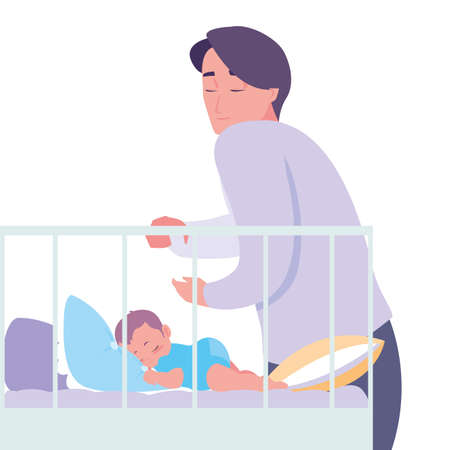Introduction to the Midwife Appointment
If you’re about to become a parent in the UK, your first midwife appointment—often called the “booking appointment”—is a huge milestone. As a first-time dad myself, I remember feeling both excited and a bit nervous walking into that first meeting with our midwife. This isn’t just a box-ticking exercise; it’s the beginning of your pregnancy journey under the care of the NHS, and it sets the tone for what’s ahead. The booking appointment usually happens between 8 and 12 weeks into your pregnancy, and it’s your chance to ask all those burning questions (trust me, you’ll have plenty). Your midwife is there not just to check on baby’s health, but also to support both mum and dad through every step of this adventure. To give you a clearer idea, here’s an overview of what this important visit typically involves in the UK:
| Aspect | What to Expect |
|---|---|
| When? | Usually between 8-12 weeks pregnant |
| Who attends? | Mum-to-be (and partner if possible) |
| Main Purpose | Health check for mum, gather medical history, plan care |
| Key Outcomes | Personal maternity notes, next steps for scans/tests |
This first appointment is your entry point into the UK’s maternity care system. It’s all about making sure you get the right support from day one, so don’t be shy about sharing concerns or asking questions—even if they seem trivial. Every family’s experience is unique, and this meeting helps tailor your care to suit your needs.
2. The Booking Appointment: What’s Involved
If you’re anything like me, your head will be spinning with questions before that very first midwife appointment. In the UK, this all-important first meeting is called the ‘booking appointment’ and it usually happens between 8 and 10 weeks into pregnancy. It’s a bit of a marathon session—expect to spend about an hour with your midwife! So, what actually happens during this booking appointment? Let’s break it down.
What Happens During the Booking Appointment?
Your midwife will go through a detailed set of questions and checks to get a full picture of your health, lifestyle, and medical history. Don’t worry if you don’t have all the answers right away—they know this is all new territory for most parents-to-be!
Information Your Midwife Will Collect
| Category | Details |
|---|---|
| Medical History | Any existing health conditions, previous pregnancies, family medical issues |
| Lifestyle | Smoking, alcohol use, diet, work environment |
| Partner & Family Health | Genetic or inherited conditions in close relatives |
| Mental Health | Your emotional wellbeing and any support needs |
| Personal Details | Name, address, NHS number, contact info |
Physical Checks You Can Expect
- Blood pressure measurement
- Height and weight check (for BMI calculation)
- Urine sample (to check for protein or infection)
- Blood tests (for things like anaemia, blood group, sickle cell & thalassaemia screening)
Documents You’ll Need to Bring Along
This part tripped me up a bit as a first-timer! Here’s what you should have ready:
- NHS number (if you know it)
- Photo ID (passport or driving licence)
- Proof of address (utility bill or bank statement)
- Details of any current medication or supplements you take
- Your GP’s details
- A list of any questions you want to ask—trust me, you’ll think of more once you’re there!
The midwife will also introduce you to your ‘maternity notes’—these are now often electronic but some areas still use the traditional paper booklet. Keep these safe: you’ll need them at every appointment. By the end of this session, I felt both overwhelmed and relieved—it’s a lot to take in but your midwife will guide you every step of the way.

3. Questions You’ll Be Asked
During your first midwife appointment in the UK, you’ll quickly realise it’s not just about confirming your pregnancy—it’s a thorough check-in on your overall wellbeing. From my own experience as a new dad sitting beside my partner, I can tell you there are lots of questions! The midwife will ask about your medical history, lifestyle, and family background. It might feel a bit personal at times, but every question serves a purpose: making sure both you and baby have the best start possible.
Common Topics Covered by Your Midwife
| Topic | Example Questions | Why It Matters (UK Perspective) |
|---|---|---|
| Your Health History | Have you had any major illnesses? Are you taking any medication? Do you have any allergies? | Helps identify risks that may affect pregnancy or birth; ensures care is tailored to NHS guidelines. |
| Lifestyle Choices | Do you smoke or drink alcohol? How often do you exercise? What’s your typical diet like? | Supports giving practical advice and referrals, such as quitting smoking services offered by the NHS. |
| Mental Health | How are you feeling emotionally? Have you experienced depression or anxiety before? | Mental wellbeing is prioritised in UK maternity care; early support can be arranged if needed. |
| Family Medical History | Is there any family history of diabetes, high blood pressure, or inherited conditions? | Certain conditions run in families and may impact pregnancy care plans within the NHS system. |
| Cultural or Religious Needs | Are there any cultural practices or religious beliefs we should know about? | The NHS values respectful, individualised care that takes cultural diversity into account. |
Why These Questions Matter
The UK health service (NHS) aims for personalised, preventative care. By understanding your unique situation, midwives can spot potential problems early—whether it’s offering extra scans, referring you to specialist teams, or simply reassuring you that everything looks normal. It also means your preferences are respected throughout your pregnancy journey. So don’t worry if it feels like an interview; every answer helps shape the safest path for both mum and baby!
4. Screenings and Tests Explained
When my partner and I attended our first midwife appointment, I’ll admit—we were a bit overwhelmed by the number of tests and screenings discussed! But don’t worry; it’s all standard NHS procedure, designed to give your little one the healthiest start possible. Here’s a breakdown of what you can expect, so you’re not caught off guard.
Blood Tests: What Are They Looking For?
Your midwife will talk you through several blood tests, which are usually done right there at the surgery or health centre. These checks are key for both mum’s and baby’s health. Here’s what they typically look for:
| Test | Purpose |
|---|---|
| Full Blood Count | Checks for anaemia (low iron) and overall blood health |
| Blood Group & Antibodies | Identifies your blood type and any antibodies that could affect baby |
| Infections Screening | Looks for hepatitis B, syphilis, and HIV—important for preventing transmission to baby |
| Sickle Cell & Thalassaemia Screening (if applicable) | Checks if you carry genes for these inherited blood conditions, especially important in certain ethnic backgrounds |
Urine Test: Not Just Checking for Pregnancy!
You’ll be asked to provide a urine sample—it’s not just about confirming pregnancy! The midwife checks for signs of protein or infection, which can be early indicators of conditions like pre-eclampsia or urinary tract infections.
Other Screenings You Might Be Offered
The NHS guidelines also recommend checking your height, weight, and blood pressure at this appointment. All these measurements help build a full picture of your baseline health as you head into pregnancy.
A Quick Word on Results and Next Steps
Your midwife will explain when to expect results (usually within a couple of weeks), and they’ll let you know if anything needs following up. In my experience, it was reassuring to know exactly what they were checking for—and that everything is geared towards catching potential issues nice and early. If anything unusual does pop up, the team will guide you every step of the way.
5. Useful Tips for Expectant Parents
If you’re heading to your first midwife appointment in the UK, here’s some practical advice from a dad who’s been there, muddled through, and (mostly) survived. I remember feeling a bit out of my depth at first, but trust me—being prepared goes a long way! Here are my top tips for expectant parents:
How to Prepare
- Jot Down Questions: Before the appointment, both you and your partner will probably have plenty of questions—don’t rely on your memory alone! Keep a notepad or use your phone to record anything that pops into your head.
- Know Your Dates: Be ready with the date of your partner’s last period and any key medical information—this is one of the first things you’ll be asked.
- Read Up on the NHS Process: The NHS website offers loads of info about what happens at each stage. A quick read can help you feel less like a fish out of water.
What to Bring
| Item | Why It’s Helpful |
|---|---|
| Maternity notes (if received) | The midwife will add information here throughout pregnancy; keep it safe! |
| ID for both parents | Sometimes requested for records or forms |
| A list of medications/allergies | Saves time and ensures nothing is missed off |
| Snacks & Water | You never know how long you might be waiting—it helps keep spirits up |
| Your own pen & notebook (or phone) | For jotting down advice, next steps, or important contacts |
| Tissues (just in case!) | It can be an emotional experience for both partners |
Supporting Your Partner During the Appointment
- Be Present: It sounds simple, but being genuinely present—listening to what’s being said and offering reassurance—can mean everything.
- Share the Load: Offer to fill in forms or ask questions if your partner feels overwhelmed.
- Stay Calm: If something unexpected comes up (like blood pressure checks or health concerns), try to stay steady and supportive—it helps more than you think.
- Encourage Open Conversation: Sometimes mums-to-be hold back questions out of nerves. Give her space and encouragement to voice anything she wants clarified.
Father’s Handy Checklist for First Midwife Appointment
- [ ] Maternity notes/any paperwork received so far
- [ ] List of questions/concerns (from both of you)
- [ ] Details about allergies & medication history
- [ ] Snacks & water bottles for both of you
- [ ] Mobile phones charged (for calendar, notes, emergency calls)
- [ ] Comfortable clothes—you might be waiting a while!
A Final Word from One Dad to Another…
No two appointments are exactly alike, but showing up prepared and supportive really does make a difference. Even just holding your partner’s hand during those early NHS visits can make her feel less alone—and trust me, that matters far more than having all the right answers!
6. After the Appointment: What Happens Next
Once you’ve wrapped up your very first midwife appointment, you might be wondering—what now? Don’t worry, you’re not left to figure things out on your own. Here’s a quick breakdown of what comes next for UK parents-to-be, based on my own experience fumbling through those early weeks!
Your Maternity Notes and Next Steps
After your appointment, your midwife will give you a set of maternity notes (sometimes called handheld notes or digital records in some areas). Guard these with your life—they’ll need to come along to every future appointment. Your midwife should also chat through what to expect at each stage and when you’ll be seen next.
Upcoming Appointments Timeline
The NHS has a standard schedule for antenatal appointments. Here’s an overview to help you plan ahead:
| Weeks Pregnant | Appointment Type | Main Focus |
|---|---|---|
| 8-12 | Booking Appointment | Health checks, blood tests, medical history |
| 10-14 | Dating Scan | Confirm due date, check baby’s development |
| 16 | Midwife Check-up | Blood pressure, urine test, general wellbeing |
| 18-21 | Anomaly Scan | Detailed baby scan for growth & health |
| 25/28/31/34+ | Regular Midwife Visits | Ongoing checks for you & baby (frequency increases if it’s your first baby) |
Support and Resources for Parents-to-Be in the UK
You’re not alone on this journey—there are loads of resources available to help answer questions or calm nerves between appointments:
- NHS Website: Up-to-date information about pregnancy stages and local services.
- NCT (National Childbirth Trust): Classes and meet-ups for new parents.
- Maternity Voices Partnership: Local groups giving feedback and support for maternity services.
- Your Midwife: Don’t hesitate to call them if something feels off—they’re used to all sorts of questions!
- Prenatal Apps: Many NHS trusts use apps like Badger Notes so you can access your records digitally.
Feeling Overwhelmed?
If all the appointments and info seem a bit much, that’s completely normal (I definitely felt that way). Just take it one step at a time—and remember, your midwife is there to guide you. The key is keeping those appointments and jotting down any worries or questions as they pop up.
A Final Word from One New Dad to Another (or Mum!)
Your first midwife appointment is just the start of your journey with the NHS maternity team. Each step builds on the last, helping keep both parent and baby healthy. There’s plenty of support out there—so reach out if you need it, and try to enjoy this wild ride as best as you can!


